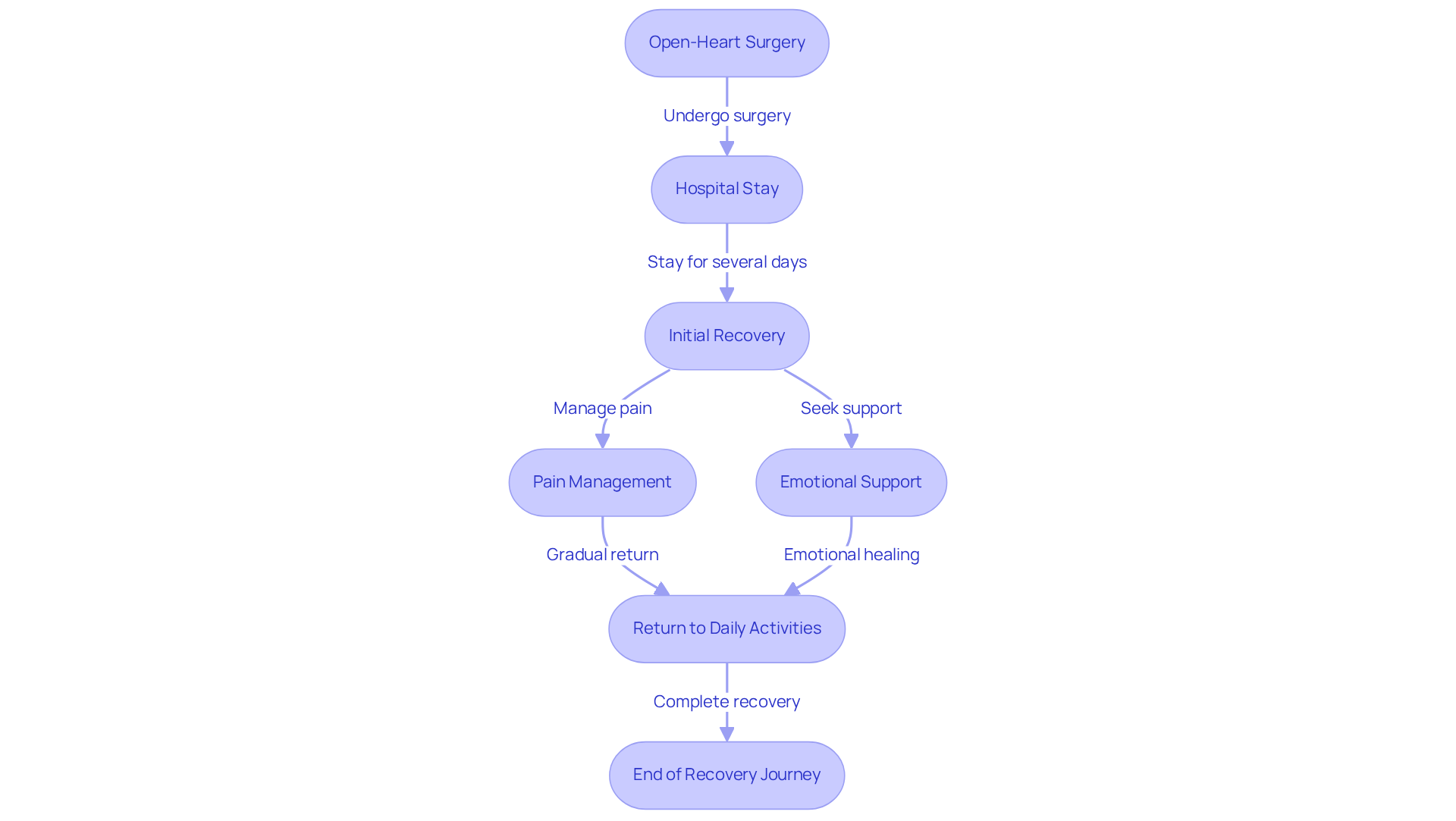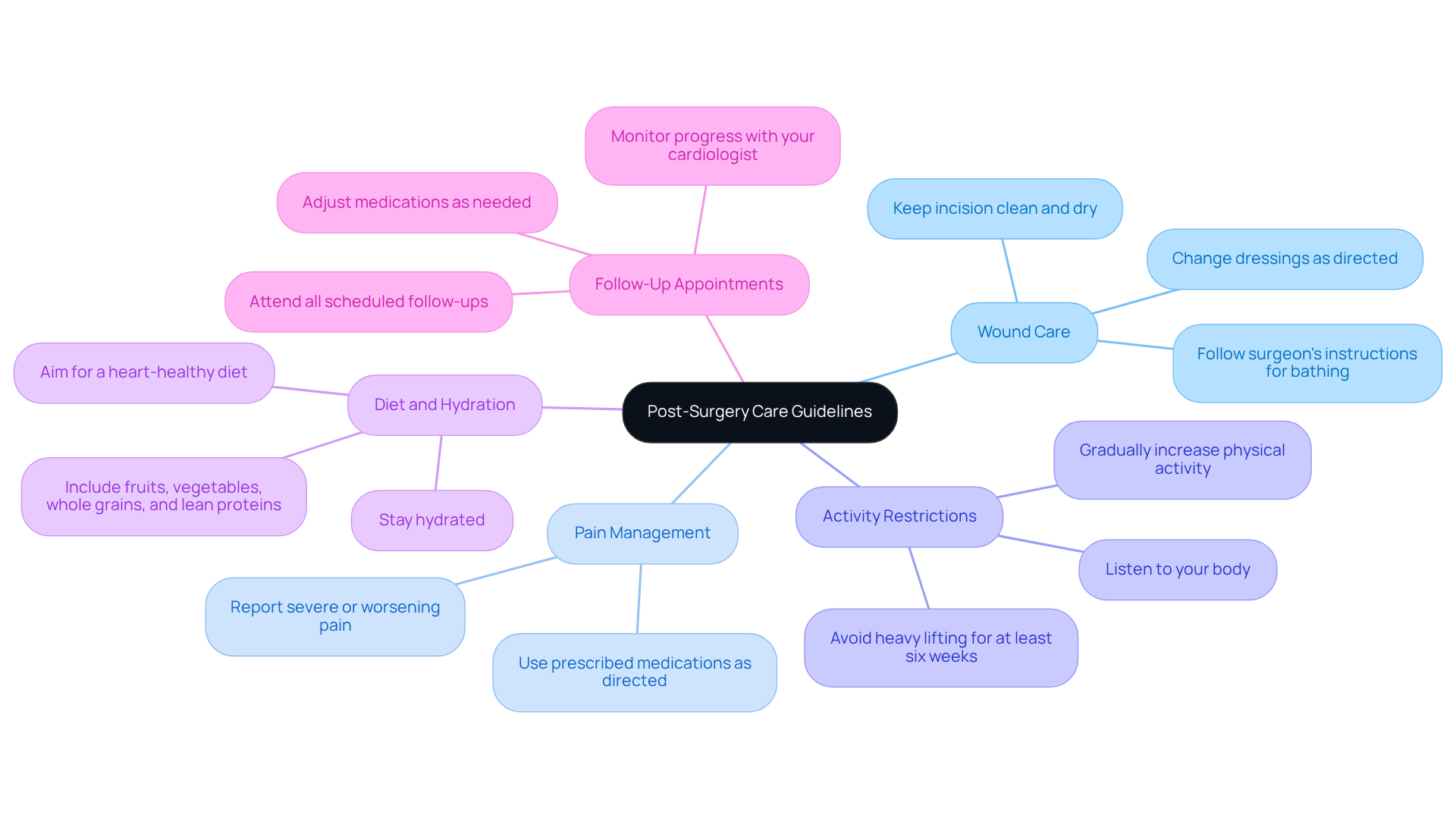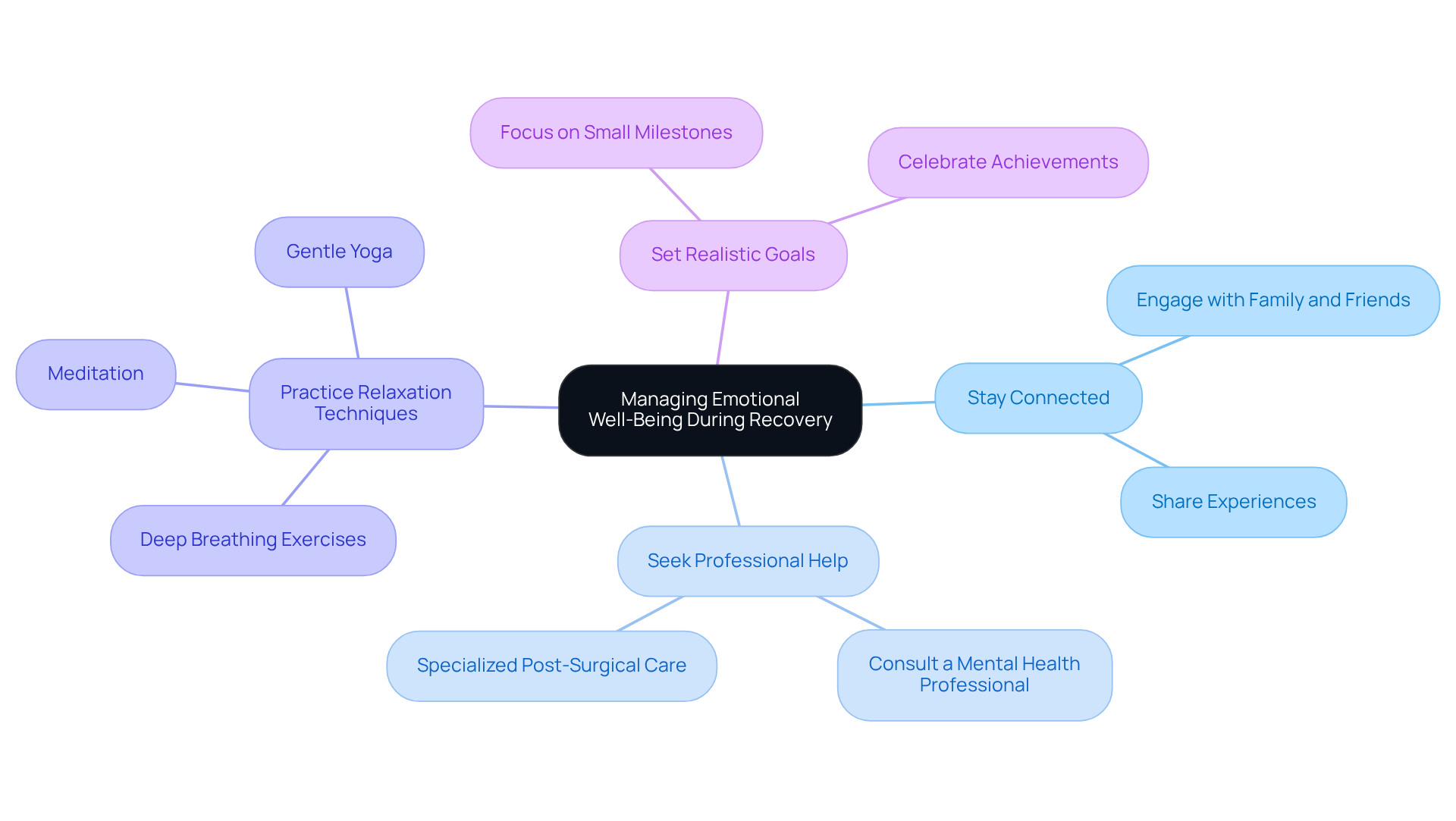


Open-heart surgery represents a significant turning point in many patients' lives. It offers hope for improved heart health, yet it also brings a challenging recovery journey. Understanding the intricacies of this recovery process is crucial for both patients and their families, as it can greatly influence the healing experience.
How can individuals effectively navigate the emotional and physical hurdles that come with this life-changing procedure? What strategies can be employed to facilitate a smoother transition back to daily life? Exploring these questions sheds light on the often-overlooked aspects of recovery, providing valuable insights and support for those embarking on this journey.
In addition to this, it's important to remember that you're not alone. Many have walked this path and found ways to cope with the challenges. By seeking support and understanding, you can make this journey a little easier. Your health and well-being matter, and there are resources available to help you every step of the way.
Open-heart surgery is a significant procedure that involves opening the chest to access the heart. It's often performed to treat conditions like coronary artery disease, heart valve disorders, and congenital heart defects. The recovery time for open heart surgery is a gradual journey, typically taking several weeks to months. The recovery time for open heart surgery can vary based on your health before the surgery and the complexity of the operation.
Many patients report experiencing pain, fatigue, and emotional ups and downs during their recovery. In fact, research indicates that about 30% of patients may face ongoing pain after the procedure, highlighting the importance of effective pain management strategies. Emotional responses can also differ widely; many individuals may struggle with feelings of anxiety and depression in the months following their surgery.
Real-life stories can shed light on the healing process. For instance, Tasha Seibert, who underwent open-heart surgery on September 8, 2023, shared her journey, emphasizing the importance of patience and self-care during recovery. Similarly, Kathy Benson, a heart valve surgery patient, advises against comparing healing timelines, as each person's experience is unique.
Typically, the recovery time for open heart surgery includes a hospital stay of several days, followed by a gradual return to everyday activities. Most patients can start driving about four weeks after surgery, as long as they feel comfortable doing so. However, the usual six-week outpatient check-up might not be enough for optimal healing, suggesting a need for more timely follow-up care.
Understanding the healing process after open-heart surgery is crucial for both patients and their families. By recognizing the potential challenges and emotional impacts, you can navigate your healing journey more effectively, ensuring a smoother transition back to daily life. Remember, you’re not alone in this; support is available, and reaching out can make a significant difference.

The recovery timeline after open-heart surgery generally follows these stages:
Hospital Stay (5-7 days): Most individuals spend several days in the hospital, often starting in the Intensive Care Unit (ICU) for close monitoring. This initial phase is crucial for assessing heart function and managing any immediate post-operative complications. It’s natural to feel anxious during this time, but rest assured, you’re in good hands.
Initial Recovery (1-2 weeks): During this period, you may experience fatigue and pain at the incision site. Light activities, such as short walks, are encouraged to promote circulation and prevent complications. It’s common to need pain medication during this time. Amavita's CardioElite™ program emphasizes the importance of comprehensive cardiac evaluations during this phase, helping to identify any potential issues early on and addressing common recovery concerns through preventive cardiology strategies. Remember, taking it slow is key to your healing.
Home Recovery (2-6 weeks): After discharge, you’ll likely move to home, where continuing light activities and gradually enhancing your mobility is important. Pain management and appropriate wound care are essential during this phase, as you may still feel discomfort and fatigue. It’s crucial to avoid lifting anything over ten pounds for six weeks to allow proper healing of your chest bone and muscles. Amavita's preventive strategies can help you manage the recovery time for open heart surgery effectively, reducing the risk of complications. You’re not alone in this journey; support is available.
Return to Regular Activities (6-12 weeks): Many individuals can restart normal activities, including work, within 6 to 12 weeks, depending on overall health and the nature of their job. Those who undergo minimally invasive procedures may return to daily activities sooner, often within 1-2 weeks. Dr. Daizo Tanaka stresses that numerous individuals can return to working in an office or home office environment a month following open-heart surgery. The CardioElite™ program supports this transition by providing ongoing monitoring and personalized care plans. Take your time; the recovery time for open heart surgery is a priority for your health.
Long-Term Healing (3-6 months): Complete healing can take up to six months, during which you may engage in cardiac rehabilitation programs aimed at improving strength and endurance. This phase is essential for long-term heart health and improving your quality of life. Be aware that temporary symptoms such as numbness, tingling, or pain in your hands or arms may occur due to nerve issues, which typically resolve within three to six months. Interacting with healthcare professionals for follow-up appointments is essential to assess heart function and general health during the healing process. Enhanced Recovery After Cardiac Surgery (ERAS) protocols, combined with the extensive assistance from Amavita's CardioElite™ program, can help speed up the recovery time for open heart surgery and reduce discomfort, offering you a structured method for your post-operative care. Remember, every step you take is a step towards better health.

Post-surgery care is vital for your recovery time for open heart surgery, and we’re here to support you throughout your healing journey. Let’s explore some essential guidelines together:
Wound Care: It’s important to keep your incision clean and dry. Please follow your surgeon's instructions about bathing and changing dressings. This will help prevent any complications and promote healing.
Pain Management: Managing your pain is crucial. Use the prescribed medications as directed, and don’t hesitate to report any severe or worsening pain to your healthcare provider. Your comfort matters.
Activity Restrictions: To ensure a smooth recovery time for open heart surgery, it is important to avoid heavy lifting and strenuous activities for at least six weeks. As you start to feel better, gradually increase your physical activity. Listen to your body; it knows best.
Diet and Hydration: Nourishing your body is key. Aim for a heart-healthy diet filled with fruits, vegetables, whole grains, and lean proteins. Staying hydrated will also support your healing process.
Follow-Up Appointments: Remember to attend all scheduled follow-ups with your cardiologist. These appointments are essential for monitoring your progress and adjusting medications as needed. We’re here to help you stay on track.
Taking care of yourself during the recovery time for open heart surgery can feel overwhelming, but remember that you’re not alone. Reach out if you have any questions or concerns; we’re here to help you through this.

The recovery time for open heart surgery can be emotionally taxing. It's completely normal to feel a whirlwind of emotions-anxiety, sadness, and frustration may all come into play. Acknowledging these feelings is the first step toward managing them. Remember, you’re not alone in this journey.
Stay connected with family and friends. Engaging with loved ones can provide the support you need. Sharing your experiences can help alleviate feelings of isolation, reminding you that others care and understand what you’re going through.
If feelings of depression or anxiety linger, don’t hesitate to seek professional help. Speaking with a mental health professional who specializes in post-surgical care can greatly impact your emotional well-being during the recovery time for open heart surgery.
In addition to this, consider practicing relaxation techniques. Simple practices like deep breathing, meditation, or gentle yoga can help reduce stress and promote emotional balance. These moments of calm can be a refuge during your recovery.
Lastly, set realistic goals for yourself. During your recovery time for open heart surgery, focus on small, achievable milestones. This approach not only fosters a sense of accomplishment but also keeps your motivation alive. Remember, every little step counts, and you’re doing great.

The journey of recovery after open-heart surgery can feel overwhelming, but it’s important to remember that you’re not alone. This article has aimed to provide a clear overview of what to expect during this recovery period, highlighting that healing encompasses both physical and emotional aspects. By acknowledging these dimensions, patients and their families can feel more prepared for the road ahead.
Key points discussed include:
Remember, reaching out for support is vital in navigating this complex experience.
Ultimately, understanding the recovery time for open-heart surgery is essential for both patients and their loved ones. By staying informed about the recovery process and actively participating in self-care, you can foster a smoother transition back to your daily life. Embracing this journey with patience and support not only enhances your healing experience but also lays the foundation for long-term heart health and emotional resilience.
So, as you move forward, take a moment to reflect: How can you prioritize your well-being during this time? Remember, seeking help is a sign of strength, and together, we can navigate this journey towards a healthier future.
What is open-heart surgery?
Open-heart surgery is a significant medical procedure that involves opening the chest to access the heart, often performed to treat conditions like coronary artery disease, heart valve disorders, and congenital heart defects.
How long does recovery from open-heart surgery typically take?
Recovery from open-heart surgery is a gradual process that typically takes several weeks to months, depending on the patient's health before the surgery and the complexity of the operation.
What are common experiences during recovery from open-heart surgery?
Many patients report experiencing pain, fatigue, and emotional ups and downs during their recovery. About 30% of patients may face ongoing pain, and feelings of anxiety and depression can also occur in the months following surgery.
Are there any personal stories that highlight the recovery process?
Yes, personal stories like that of Tasha Seibert, who underwent surgery on September 8, 2023, emphasize the importance of patience and self-care during recovery. Kathy Benson, a heart valve surgery patient, advises against comparing healing timelines, as each person's experience is unique.
What does the typical recovery timeline look like after open-heart surgery?
The typical recovery timeline includes a hospital stay of several days, followed by a gradual return to everyday activities. Most patients can start driving about four weeks after surgery, provided they feel comfortable doing so.
Is the six-week outpatient check-up sufficient for recovery?
The usual six-week outpatient check-up may not be enough for optimal healing, suggesting that more timely follow-up care could be beneficial for patients.
How can patients and families navigate the healing process after open-heart surgery?
Understanding the healing process and recognizing potential challenges and emotional impacts can help patients and their families navigate recovery more effectively, ensuring a smoother transition back to daily life. Support is available, and reaching out can make a significant difference.